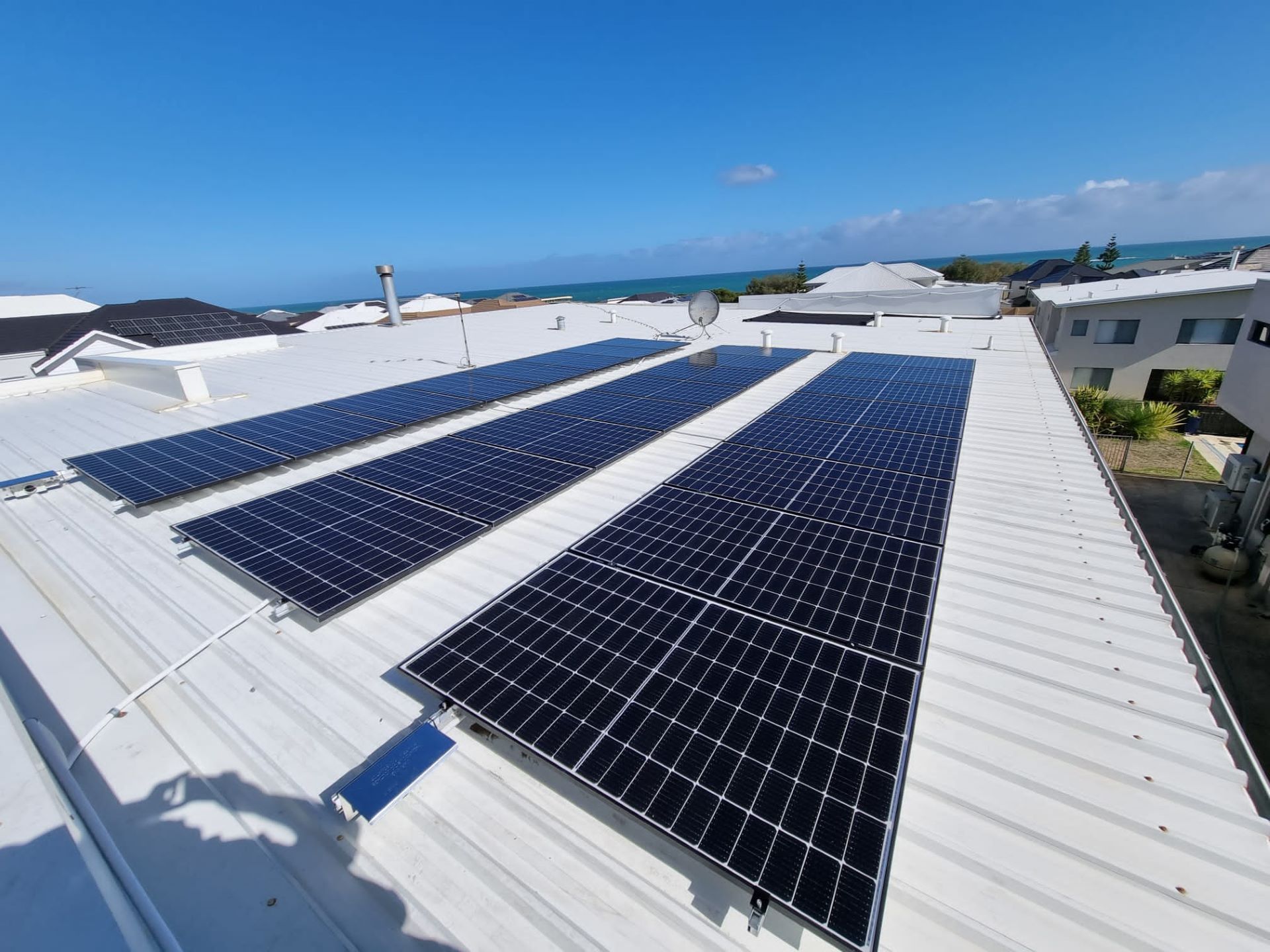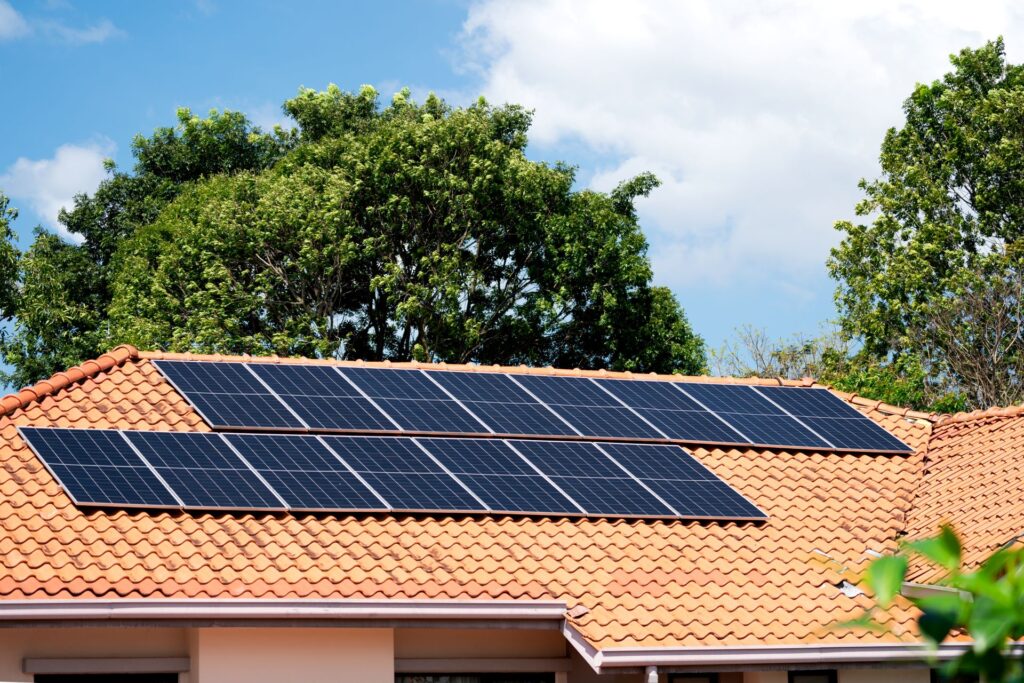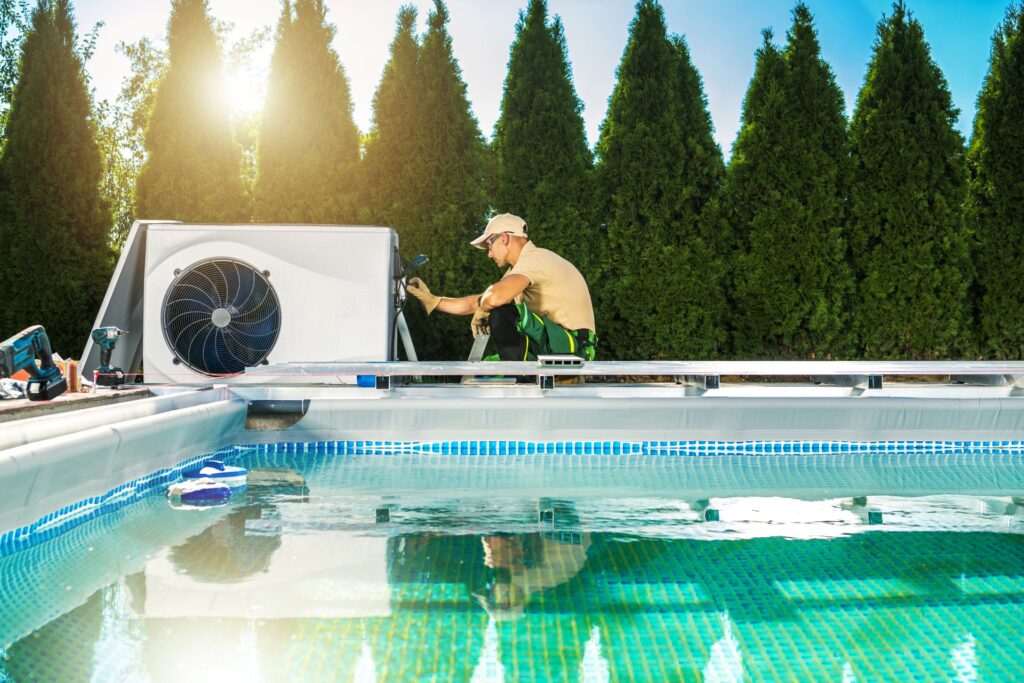Solar panels play a crucial role in harnessing the sun’s energy, especially during Perth’s sunny summer months. However, the high temperatures can sometimes cause these panels to overheat, which can lower their efficiency and increase wear and tear. Understanding how to manage and prevent overheating is essential for keeping your solar system running smoothly and efficiently.
Overheating occurs when solar panels become too hot, which can reduce their ability to convert sunlight into electricity. This decrease in performance not only affects the amount of energy produced but also shortens the lifespan of your solar panels. It’s important to recognise the signs of overheating and take steps to prevent it. By doing so, you can ensure your panels operate at their best even during the hottest days.
Today, let’s explore different ways to identify and address overheating in solar panels. We’ll look at how to spot the signs of overheating, methods to prevent it, and the advantages of professional management. Understanding these strategies will help you maintain your solar panels more effectively and keep your energy production steady throughout Perth’s summer.
Understanding Overheating in Solar Panels
Overheating in solar panels occurs when they get too hot, which can reduce their efficiency. Solar panels work best at a certain temperature range; if they exceed this range, their ability to convert sunlight into electricity drops. Overheating can be a common issue during Perth’s hot summer months due to the intense heat and continuous sunlight.
Solar panels are made of silicon cells that can lose efficiency as temperatures rise. While they are designed to withstand various weather conditions, extreme heat can still pose challenges. For every degree Celsius, the temperature rises above the optimal range, the efficiency of the solar panels may decrease by a certain percentage. This not only affects the energy production but also puts additional stress on the system components, potentially leading to damage over time.
Understanding the problem of overheating helps in taking preventive measures. It is important to consider factors such as cooling technologies and proper installation to mitigate the effects of high temperatures on your solar panels.
Signs Your Solar Panels Are Overheating
Knowing the signs of overheating can help you address the issue before it causes significant damage. One of the most noticeable signs is a drop in the efficiency of your solar system. If you observe a sudden decrease in energy output, especially during the peak sunny hours, it can indicate that your panels are getting too hot.
Another sign to watch for is discolouration or warping of the solar panels. Excessive heat can cause the materials to degrade, leading to changes in appearance. This can affect the performance and longevity of the panels. Inspecting your panels regularly can help you spot these physical signs early.
Additionally, overheating might trigger the system’s protective mechanisms, causing it to shut down or operate in a reduced capacity to prevent damage. You may notice alerts or warnings from your solar monitoring system if it detects that the panels are over temperature. Paying attention to these warnings is crucial for maintaining the health of your solar system.
Preventing Overheating in Solar Panels
Proper Installation and Positioning
One of the best ways to prevent solar panels from overheating is through proper installation and positioning. Panels should be installed at an angle that allows air to circulate underneath. This helps to cool them and maintain optimal performance. Additionally, installing panels in a location that receives morning and afternoon sun, while avoiding the harshest midday rays, can regulate temperatures more effectively.
Positioning panels away from reflective surfaces like metal roofs or water bodies can also minimise overheating. These surfaces can intensify the sun’s heat and contribute to higher panel temperatures. Ensuring that your panels are well-ventilated, with no obstructions blocking airflow, further helps in reducing the risk of overheating.
Regular Cleaning and Maintenance
Regular cleaning and maintenance are crucial for preventing overheating. Dust, dirt, and debris can accumulate on the surface of the panels, obstructing sunlight and causing them to become hotter. Cleaning the panels regularly ensures they remain efficient and cool.
Maintenance also involves checking for any signs of wear or damage that heat might exacerbate. Regular inspections can help identify potential issues before they become serious problems. Keeping the panels and their surroundings clean and in good repair ensures they continue to operate efficiently, even during Perth’s hot summer months.
Using Cooling Technologies
Using cooling technologies can also help manage the temperature of solar panels. Various cooling methods, such as passive cooling systems that enable better airflow or active cooling systems like fans and water sprays, can be integrated into your solar setup. These technologies help dissipate the heat, maintaining the panels at an optimal temperature for energy production.
Additionally, some advanced solar panels come with built-in cooling technologies. These panels are designed to manage heat more effectively, reducing the risk of overheating and improving overall efficiency. Investing in such technology can provide long-term benefits, ensuring your system runs smoothly even under extreme heat.
Benefits of Professional Solar Panel Management
Improved Efficiency and Lifespan
Professional solar panel management can significantly improve the efficiency and lifespan of your system. Experts ensure the panels are installed correctly and monitor their performance regularly. This reduces the risk of overheating and optimises energy production. Regular professional maintenance helps to identify potential issues early, ensuring that the panels continue to operate at peak efficiency.
Safety and Performance Monitoring
Having professionals manage your solar panels provides an added layer of safety. They perform regular checks to ensure the system operates safely. Experts use advanced tools to monitor the performance of your solar panels in real-time, quickly addressing any anomalies. This proactive approach prevents issues from escalating into significant problems and ensures the reliable performance of your solar system.
Long-Term Cost Savings
Investing in professional solar panel management offers long-term cost savings. By preventing overheating and ensuring efficient operation, your system can produce more energy over its lifespan. This reduces energy costs and extends the life of your panels, saving you money on replacements and repairs. Professional management also helps in optimising each component of your solar setup, resulting in better overall performance and lower maintenance costs.
Conclusion
Managing and preventing overheating in solar panels is crucial for maintaining their efficiency, especially during Perth’s hot summers. Proper installation, regular cleaning, and the use of cooling technologies can help keep your solar panels at an optimal temperature. Additionally, professional solar panel management ensures that your system runs smoothly, safely, and efficiently, providing long-term benefits.
If you’re looking to optimise your solar panel system and prevent overheating, KLUEM Group can help. Our team of Perth electricians and skilled solar experts is ready to provide the support you need. Contact KLUEM Group today to keep your solar panels running efficiently all summer long.



